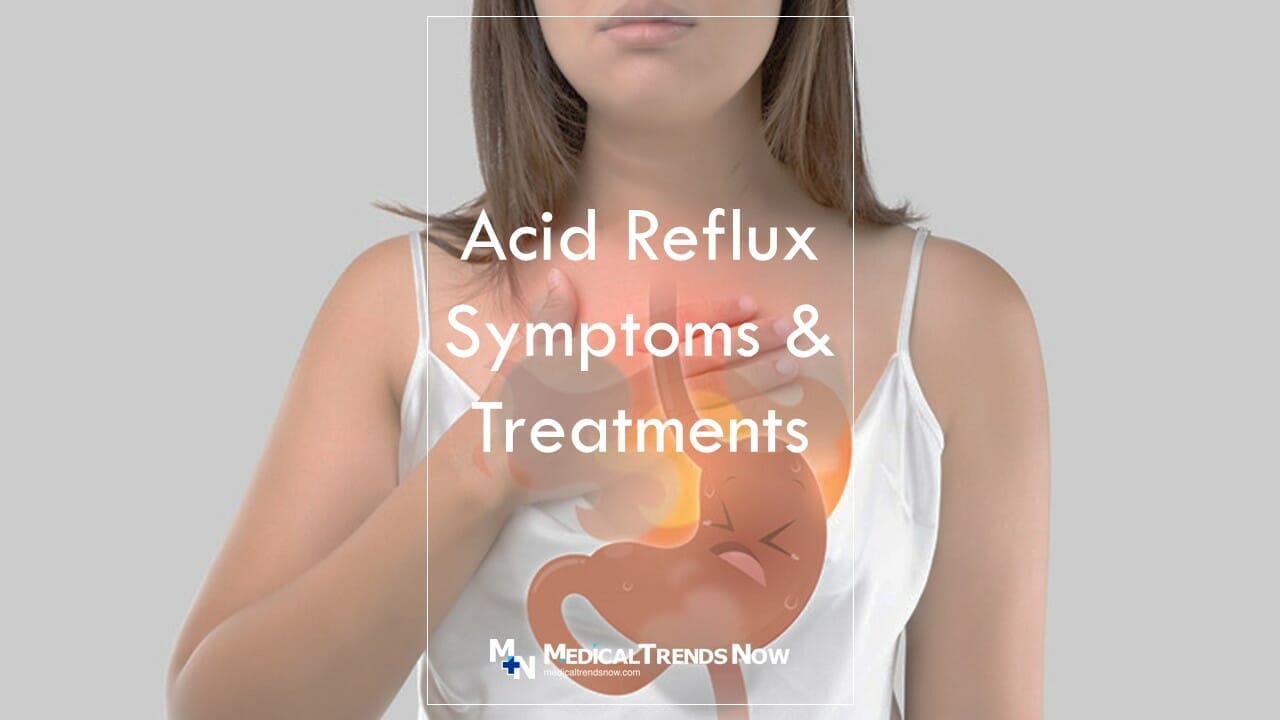Table of Contents
Are you experiencing heartburn, chest pain, difficulty swallowing, or a sour taste in your mouth? Learn the common acid reflux symptoms and how to reduce your risk.
Acid reflux affects many Filipinos and can be quite uncomfortable. Acid reflux symptoms can vary from person to person, with some experiencing mild symptoms and others having more extreme reactions. Understanding the symptoms of acid reflux is important for identifying the condition and seeking treatment in time.
What Is Acid Reflux?
Acid reflux, also known as gastroesophageal reflux disease (GERD), is a common medical condition affecting millions of people worldwide. It occurs when acid from the stomach rises up into the esophagus, causing irritation and inflammation of the lining. Common symptoms of acid reflux include chest pain, heartburn, difficulty swallowing, and a sour taste in the mouth. In more severe cases, it can lead to breathing problems or even damage to tooth enamel due to exposure to stomach acids.
Managing acid reflux involves making lifestyle changes such as avoiding foods and drinks that trigger symptoms and eating smaller meals more frequently throughout the day. Your doctor may also prescribe medication if lifestyle changes are insufficient to treat your condition.
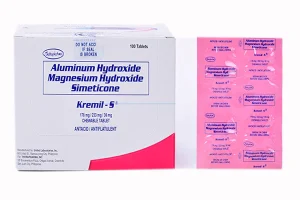
Common Causes Of Acid Reflux
Acid reflux is a common digestive disorder that affects many Filipinos. Acid reflux occurs when stomach acid enters the esophagus, causing an uncomfortable burning sensation in the chest or throat. There are several potential causes of acid reflux, including lifestyle habits and underlying medical conditions.
Certain dietary choices can contribute to acid reflux, such as caffeine and alcohol consumption. Eating large meals or meals high in fat can also trigger acid reflux symptoms. Smoking can irritate the lining of the esophagus, resulting in an increase in symptoms. Additionally, medications like ibuprofen and aspirin can increase stomach acid production levels and worsen existing acid reflux symptoms.
Medical conditions may also contribute to symptoms of acid reflux, such as hiatal hernia, pregnancy, and scleroderma.

Dietary Triggers Of Acid Reflux
While there are many treatments available for acid reflux, one of the most effective ways to reduce symptoms is by avoiding dietary triggers:
Certain foods, such as chocolate, peppermint, fatty and fried foods, spicy food, and tomato-based products, can increase stomach acid production or relax the lower esophageal sphincter (LES) then increases the risk of reflux. Additionally, large meals may put additional pressure on the LES, resulting in the regurgitation of stomach acid into the throat and mouth. Alcohol can also irritate both the stomach lining and LES muscles.
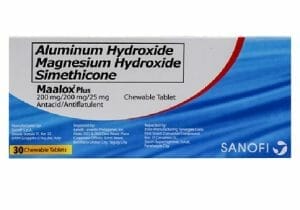
What are the Common Acid Reflux Symptoms?
Acid reflux, also known as gastroesophageal reflux disease (GERD), is a condition characterized by the presence of stomach acids in the esophagus, resulting in uncomfortable symptoms. Common signs and symptoms of acid reflux include heartburn, chest pain, difficulty swallowing, a sour taste at the back of the throat, and regurgitation. Additionally, individuals may experience coughing, hoarseness, or even asthma-like symptoms due to acid backing up into their lungs.
In some cases, those affected by GERD may experience bad breath or nausea. It is important to note that while these symptoms can be unpleasant, they do not usually cause any serious complications. However, if left unchecked, acid reflux can lead to inflammation and irritation of the esophagus and an increased risk for certain types of cancer.
Heartburn and Regurgitation
The two most common symptoms of acid reflux are heartburn and regurgitation. Heartburn is an uncomfortable burning sensation that begins in the chest and travels up the throat, often leaving a sour or bitter taste in your mouth. Regurgitation occurs when stomach acid backs up your throat or mouth, causing an unpleasant sour taste or even vomiting. Other less common symptoms include difficulty swallowing, dry cough, sore throat, hoarseness, and bad breath.
Chest Pain
Chest pain caused by acid reflux typically occurs after eating and worsens when lying down. The pain may be sharp or burning in nature and usually lasts for several minutes to hours, depending on the severity of the condition.
Difficulty Swallowing
Acid reflux can also lead to pain with swallowing or discomfort when eating certain foods. In particular, those suffering from acid reflux may experience difficulty swallowing due to a feeling like food gets stuck in their throat, or they may be unable to swallow properly.
Chronic Cough
A chronic cough is one of the most common symptoms of acid reflux. This type of persistent coughing usually begins suddenly and can last for several weeks or longer. Filipinos with acid reflux are also more likely to experience a dry cough that does not produce mucus or phlegm. Other symptoms associated with a chronic cough caused by acid reflux include sore throats, wheezing, hoarseness, and chest pain due to irritation from stomach acids.
Nausea and Vomiting
When suffering from acid reflux, individuals may experience nausea and an unpleasant sour taste in the mouth. Vomiting often occurs due to more severe episodes of acid reflux and may be accompanied by other symptoms such as abdominal pain or burning sensations in the chest. In some cases, it may even cause bleeding in the throat due to irritation caused by acidic stomach contents coming up into the esophagus.
Laryngitis
Laryngitis typically causes hoarseness, sore throat, and difficulty speaking or swallowing. If left untreated, it may even result in nodules or polyps on the vocal cords and permanent damage to them over time. If you experience symptoms of acid reflux along with laryngitis, it’s important to see your doctor in the Philippines as soon as possible for proper diagnosis and treatment.

Diagnosing Acid Reflux
Diagnosing this condition can involve a variety of tests and procedures, ranging from simple physical exams to endoscopic imaging studies.
The diagnosis of acid reflux begins with a comprehensive medical history and physical exam. During the physical exam, your Filipino doctor will listen for any distinctive noises associated with GERD, such as heartburn or regurgitation. In addition, your physician may order lab tests to evaluate your overall health and check for any underlying conditions that could be contributing to your symptoms.

Treatment of Acid Reflux
Fortunately, there are effective treatments available to help manage symptoms of acid reflux:
Medications prescribed for treating acid reflux vary depending on the severity of symptoms but may include antacids, proton pump inhibitors (PPI), or H2 blockers. Antacids are taken immediately after meals or when symptoms appear; they neutralize stomach acids to provide relief. Proton pump inhibitors block stomach cells from producing too much acid and reduce inflammation in the esophagus, while H2 blockers work by reducing the production of stomach acids.
Medicine for Acid Reflux
There are many treatments available to help reduce acid reflux symptoms. From lifestyle changes to over-the-counter medications and surgery, acid reflux medicine can relieve its often uncomfortable symptoms.
The first line of defense against acid reflux is usually lifestyle changes like avoiding certain foods and eating smaller meals more often throughout the day. However, if these measures are insufficient, many doctors in the Philippines prescribe antacids or proton pump inhibitors (PPIs). Antacids work quickly to neutralize stomach acids, while PPIs block their production in the first place.

What are the different kinds of medicines for acid reflux?
Antacids: A Quick Fix for Acid Reflux
Acid reflux can be difficult to manage, especially when dealing with uncomfortable and sometimes painful symptoms. Fortunately, antacids provide quick relief for those suffering from acid reflux. Antacids work by neutralizing the stomach acid that causes irritation in your esophagus and other digestive system areas. Examples of common antacid brand medications include:
Ducid Aluminum hydroxide + Magnesium hydroxide
Gaviscon Sodium alginate; sodium bicarbonate (sodium hydrogen carbonate); and calcium carbonate
Kremil-S Aluminum hydroxide, Magnesium hydroxide, simeticone
Maalox Aluminum hydroxide + Magnesium hydroxide
Simeco Hydrotalcite, magnesium hydroxide, dimethicone
These antacid medications are available over the counter in the Philippines in liquid form or as chewable tablets.
In addition to their convenience, these types of medications are often recommended as first-line treatments for mild cases of acid reflux because they don’t have any major side effects or interactions with other drugs.
Proton Pump Inhibitors: Long-Term Treatment of Acid Reflux
Proton Pump Inhibitors, or PPIs, have been used for years to help Filipinos suffering from acid reflux. These drugs block the stomach’s production of acid, thus reducing the burning sensation and discomfort that can come with frequent heartburn. Research has shown that taking a PPI on a long-term basis can be a safe and effective way to treat chronic acid reflux.
PPIs are typically prescribed when antacids alone do not relieve acid reflux symptoms. They have been proven to reduce the frequency of symptoms associated with GERD (gastroesophageal reflux disease). They should be taken regularly to control the lower esophagus’s long-term damage caused by acid corrosion.
H2 Blockers: An Alternative to Proton Pump Inhibitors
Proton pump inhibitors (PPIs) are the most widely used class of drugs to treat acid reflux, heartburn, and gastroesophageal reflux disease. But for some Filipinos, PPIs may not be the best option. H2 blockers might provide an alternative solution with fewer potential side effects for these individuals.
H2 blockers are a type of medication that reduces the amount of acid produced in your stomach. This reduces symptoms such as heartburn and indigestion. Unlike PPIs, which have been linked to serious long-term health complications such as kidney disease and bone fractures, H2 blockers are generally considered safe when taken at recommended dosages for short-term use. In addition, they’re potentially more effective than PPIs at treating some types of heartburn and GERD symptoms that persist despite treatment with PPIs.
Antibiotics: Treating Bacterial Overgrowth from Acid Reflux
Many Filipinos who suffer from acid reflux symptoms rely on over-the-counter medications to alleviate the pain. Some may find themselves dealing with a more serious issue in the form of bacterial overgrowth. Antibiotics are one way to treat this condition, but there are certain things Filipino patients should consider before beginning any course of treatment.
When it comes to treating bacterial overgrowth caused by acid reflux, antibiotics can be an effective solution. However, doctors in the Philippines must first ensure that the infection is caused by bacteria and not a virus or other pathogen; if not, antibiotic therapy may not be necessary.
Additionally, physicians must assess whether or not the patient has any underlying conditions that could interfere with their response to antibiotics; these include liver or kidney disease and diabetes. If so, alternative treatments may need to be discussed.
![WATSONS Azithromycin antibiotics [PRESCRIPTION REQUIRED]](https://e52hyu4yuyt.exactdn.com/wp-content/uploads/2022/12/WATSONS-Azithromycin-antibiotics-PRESCRIPTION-REQUIRED-300x300.jpg?strip=all&lossy=1&ssl=1)
Foaming Agents: Combatting Intestinal Gas from Acid Reflux
Acid reflux symptoms can be uncomfortable and sometimes painful for those suffering from it. Foaming agents are a type of medication that can help reduce the discomfort associated with acid reflux. The agents work by forming a foam barrier on the stomach contents’ surface, which helps reduce gas and bloating caused by acid reflux. This article will explore how foaming agents work, what medications are available, and tips for using them safely.
Foaming agents contain surfactants that create a foam-like layer over the stomach contents when taken orally. This foam helps to coat gastric acids, reducing their contact with the lower esophageal sphincter and decreasing symptoms of acid reflux such as heartburn, belching, and abdominal pain.
Diet & Lifestyle Changes
Acid reflux can be uncomfortable and, in some cases, dangerous. However, simple lifestyle changes make it possible to reduce acid reflux risk. Diet is an important factor in keeping acid reflux at bay. Eating smaller meals more frequently throughout the day can help reduce acid reflux symptoms by allowing the stomach to digest food faster and easier. Avoiding processed and fried foods and alcohol and caffeine can also lessen the chances of developing acid reflux.
In addition to dietary changes, lifestyle modifications may also play a role in reducing acid reflux symptoms. Smoking should be avoided as it impairs muscle reflexes that prevent stomach acids from entering the esophagus. Reducing stress levels is another way to minimize risks associated with acid reflux; relaxation techniques such as meditation or yoga may help manage stress levels effectively.
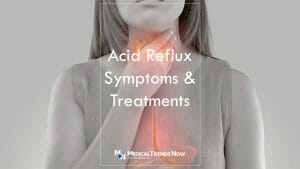
Which Doctor Can Treat Acid Reflux in the Philippines?
The first step in finding acid reflux relief is to identify which Filipino doctor can detect acid reflux symptoms and treat them accordingly.
Internists and gastroenterologists are the two main types of doctors in the Philippines who can diagnose and treat acid reflux. A Filipino internist doctor specializes in internal medicine and has extensive knowledge of diagnosing, treating, and preventing diseases related to the body’s organs. A gastroenterologist specializes specifically in treating digestive disorders, including those caused by acid reflux. They have additional training to help diagnose and treat conditions like GERD (gastroesophageal reflux disease).
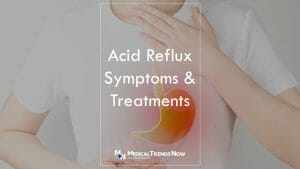
Risk Factors for Acid Reflux
Acid reflux is a condition that causes uncomfortable symptoms such as heartburn, chest pain, and regurgitation. It is caused by the backward flow of stomach acid into the esophagus and can be triggered by certain lifestyle factors. For those who experience regular acid reflux symptoms, understanding which risk factors could contribute to their discomfort is important for managing their condition.
Some risk factors associated with acid reflux include diet, alcohol consumption, smoking, and obesity. Eating certain foods such as fried or fatty foods, citrus fruits, garlic, onions, and peppermint can all increase the likelihood of experiencing symptoms of acid reflux. Alcohol use has also been linked to an increased risk of developing this condition due to its effects on digestion and stomach acids. Smoking also weakens lower esophageal sphincter muscles, leading to further acid reflux symptoms and episodes.

Summary: Common Acid Reflux Symptoms and Treatments in the Philippines
In conclusion, acid reflux symptoms can range from mild to severe and vary from person to person. It is important to consult a Filipino doctor if you experience any of the above symptoms. Acid reflux can be managed or even eliminated with proper diagnosis and treatment. Additionally, lifestyle modifications such as changing your diet and avoiding certain trigger foods can help reduce the severity of acid reflux symptoms. Adopting a healthier lifestyle overall may also help alleviate acid reflux episodes.
Sources: Acid Reflux Symptoms and Treatments
- Gastroesophageal reflux disease (GERD) – Mayo Clinic
- GERD (Chronic Acid Reflux) – Cleveland Clinic
- 9 ways to relieve acid reflux without medication – Harvard Health
- Heartburn and acid reflux symptoms – NHS
- Acid Reflux (GER & GERD) in Adults | NIDDK
- Gastroesophageal Reflux Disease (GERD) – Hopkins Medicine
- Home Remedies for Heartburn: 10 Ways to Get Rid of Acid Reflux – Houston Medicine
- GERD (Acid Reflux Symptoms & Treatment) | Aurora Health Care
- Gastroesophageal Reflux Disease (GERD)/Heartburn – Cedars Sinai
- Gastroesophageal Reflux Symptoms – American Academy of Allergy Asthma & Immunology AAAAI
- Symptoms of GERD – About GERD
- 10 GERD Symptoms Not Recognized by Most Acid Reflux Sufferers – Endoscopy Center
- GERD Symptoms: Signs of Acid Reflux Disease – TIF
- 6 Signs You’re Suffering From Acid Reflux & How to Fix It – Gastroenterology Consultants
Disclaimer
This website is intended to educate both members of the general public and those working in the medical field on the prevalence, causes, and methods for preventing, diagnosing, and treating diseases that affect people throughout their lives. This website’s content is provided solely for informational reasons and is not meant to serve as a substitute for the advice of a qualified medical practitioner.

